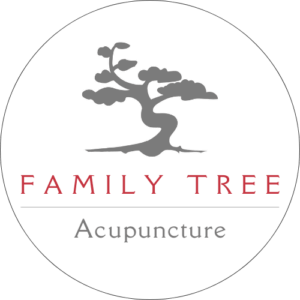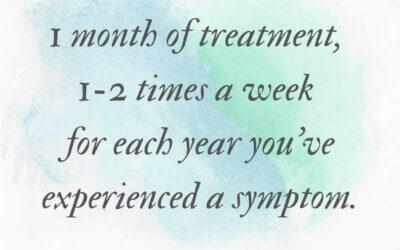Unlocking the Healing Potential of Herbal Medicine

- Unlocking the Healing Potential of Herbal Medicine
- What is the History of Herbal Medicine?
- What are Some Common Herbal Medicines and Their Uses?
- The Safety and Efficacy of Herbal Medicines
- When Should I Use Herbal Medicine?
- When Should I Avoid Taking Herbal Medicine?
- The Future of Herbal Medicine
- The Role of Herbal Medicine in Integrative Medicine
- Research and Development in Herbal Medicine
- What are the Challenges and Limitations of Herbal Medicine?
- Educating Healthcare Providers and Consumers
- The Importance of Respecting the Use of Plants in Herbal Medicine
Herbal medicine has been used for thousands of years to treat various health conditions. With the growing popularity of alternative medicine, many people are seeking natural remedies for their ailments. This informative blog will answer the question of whether herbal medicine can genuinely improve your health.
What is the History of Herbal Medicine?
Herbal medicine, also known as botanical medicine, has been an integral part of human history. Plants have been used for their therapeutic properties since ancient times, with traditional Chinese medicine and Ayurveda serving as prime examples of systems that have relied on the use of plants for healing.
Understanding Herbal Supplements:
Herbal supplements are a modern take on traditional herbal remedies. Made from plant extracts or parts, these supplements are a popular herbal alternative to pharmaceutical drugs. Many people choose herbal supplements over conventional medicine due to their natural origins and the belief that they have fewer side effects.
What are Some Common Herbal Medicines and Their Uses?
There are numerous herbal medicines available today, each with its own set of benefits and uses. Some of the most popular herbal medicines include:
St. John’s Wort:
St. John’s Wort is a well-known herbal supplement used to treat mild to moderate depression. It is considered an effective alternative to conventional antidepressants for some individuals.
Echinacea:
Echinacea is a popular herbal remedy used to boost the immune system and fight off infections, particularly the common cold.
Saw Palmetto
Saw Palmetto is a popular herbal supplement used to support prostate health and treat urinary tract issues in men.
Black Cohosh:
Black Cohosh is a popular herbal supplement for women that is used to help alleviate premenstrual syndrome (PMS) and menopausal symptoms, such as hot flashes and mood swings.
Ginkgo Biloba
Ginkgo Biloba, extracted from the leaves of the Ginkgo tree, is one of the oldest living tree species. It is commonly used to enhance memory and cognitive function, particularly in older adults. Ginkgo Biloba is also believed to have antioxidant and anti-inflammatory properties, which may help alleviate symptoms of asthma, tinnitus, and vertigo.
Turmeric
Turmeric, a popular spice in Indian cuisine, contains an active compound called curcumin. This compound is believed to have anti-inflammatory, antioxidant, and anticancer properties. Turmeric is commonly used to relieve symptoms of arthritis, digestive disorders, and skin conditions.
Milk Thistle
Milk Thistle is a popular herbal medicine known for its liver-protective properties. It contains an active ingredient called silymarin, which is believed to have antioxidant and anti-inflammatory effects. Milk Thistle is often used to support liver function, particularly in cases of liver disease or exposure to toxins.
Valerian Root
Valerian root is an herbal medicine commonly used for its calming and sedative effects. It is often recommended as a natural remedy for insomnia, anxiety, and stress. Valerian root may also help relieve muscle spasms and menstrual cramps.
Garlic
Garlic is a well-known culinary ingredient with numerous medicinal properties. It is believed to have antibacterial, antiviral, and antifungal effects, making it a popular choice for treating infections and boosting the immune system. Garlic is also known for its potential to lower high blood pressure and reduce high cholesterol levels.
The Safety and Efficacy of Herbal Medicines
As with any form of medicine, it’s essential to consider the safety and efficacy of herbal medicines before using them.
Herbal Medicine Interactions with Prescription Medications
Herbal medicines may interact with prescription medications, leading to adverse effects or reducing the effectiveness of conventional treatments. It’s crucial to consult your doctor before taking any herbal medicines, especially if you’re currently on prescription medications.
Allergic Reactions
Some people may experience allergic reactions to herbal medicines. If you experience symptoms like itching, swelling, or difficulty breathing after taking an herbal supplement, consult your doctor immediately.
Quality and Potency of Herbal Supplements
The quality and potency of herbal supplements can vary significantly between manufacturers. When buying herbal medicines, it’s important to choose products from reputable companies that follow good manufacturing practices.
When Should I Use Herbal Medicine?
The use of herbal medicine can be appropriate in various situations, depending on the condition being treated and the individual’s preferences.
Complementary and Alternative Medicine
In some cases, herbal medicines may be used alongside conventional medical treatments as a complementary and alternative medicine (CAM) approach. This approach combines the best of both worlds, providing patients with a more comprehensive treatment plan.
Treating Mild Health Conditions
Herbal medicines can be especially effective in treating mild health conditions or providing symptomatic relief. For example, St. John’s Wort may be useful for those with mild depression, and Echinacea may help prevent colds and flu.
When Should I Avoid Taking Herbal Medicine?
Although herbal medicine can be beneficial in many situations, there are instances when it’s best to avoid using it.
Serious Health Conditions
Herbal medicines are not recommended for treating serious health conditions, such as cancer or severe infections. In these cases, conventional medical treatments should be the primary healthcare approach.
During Pregnancy and Breastfeeding
Pregnant and breastfeeding women should exercise caution when using herbal medicines, as some herbs can potentially harm the developing baby or pass through breast milk. It’s essential to consult your doctor before taking any herbal supplements during pregnancy or while breastfeeding.
Undiagnosed Medical Conditions
If you have an undiagnosed medical condition, it’s crucial to seek a professional medical opinion before relying on herbal medicines. Some herbs may mask or exacerbate symptoms, making it harder to diagnose and treat the underlying issue.
The Future of Herbal Medicine

As more people seek natural alternatives to conventional medicine, the interest in herbal medicine will likely continue to grow. Ongoing research into the safety and efficacy of herbal medicines may lead to new discoveries, improved regulations, and a better understanding of their potential benefits and risks.
In conclusion, herbal medicine can be a valuable addition to your healthcare routine, offering a natural approach to treating a variety of conditions. However, it’s essential to use herbal medicines safely and responsibly, and always consult your doctor before starting any new herbal regimen. By staying informed and making smart choices, you can harness the power of plants to improve your health and well-being.
The Role of Herbal Medicine in Integrative Medicine
Integrative medicine is an approach to healthcare that combines conventional medical treatments with complementary therapies, such as herbal medicine, to address the whole person – body, mind, and spirit. Integrative medicine aims to provide a more comprehensive and personalized care plan, focusing on prevention and addressing the root cause of illness rather than just treating symptoms.
Combining Herbal Medicine with Conventional Treatments
In an integrative medicine approach, herbal medicines can be used alongside conventional treatments to enhance their effectiveness and reduce potential side effects. For example, some herbal medicines may help reduce the side effects of chemotherapy, such as nausea and vomiting, or support the immune system during cancer treatments.
Addressing the Whole Person
Integrative medicine recognizes the importance of addressing the whole person, including their emotional, mental, and spiritual well-being. Herbal medicine can play a role in this holistic approach by supporting mental health, reducing stress and anxiety, and promoting relaxation.
Preventative Health
Herbal medicine can also play a significant role in preventative health, helping to maintain overall well-being and reduce the risk of developing chronic illnesses. By supporting the immune system, promoting healthy digestion, and maintaining a healthy inflammatory response, herbal medicines can contribute to a healthier, more balanced lifestyle.
Research and Development in Herbal Medicine
As interest in herbal medicine grows, so too does the need for scientific research and development. Many herbal medicines have been used for centuries, but modern research is needed to validate their safety and efficacy and discover new potential applications.
Clinical Trials
Clinical trials are essential for establishing the safety and effectiveness of herbal medicines. As more high-quality clinical trials are conducted, healthcare providers and patients will have a better understanding of the potential benefits and risks associated with herbal medicine use.
Standardization and Quality Control
Standardization and quality control are critical aspects of herbal medicine research and development. Ensuring that herbal products are consistently produced with the same active ingredients and potency is essential for their safety and efficacy. Standardization also helps healthcare providers and patients make informed decisions about the appropriate dosage and use of herbal medicines.
New Discoveries and Applications
Ongoing research into herbal medicine may lead to new discoveries and applications for these natural remedies. As scientists continue to investigate the chemical compounds found in plants, they may uncover new potential benefits and uses for various herbal medicines.
What are the Challenges and Limitations of Herbal Medicine?
Despite the potential benefits of herbal medicine, some challenges and limitations need to be considered.
Lack of Regulation
In many countries, herbal medicines are not subject to the same rigorous testing and regulation as pharmaceutical drugs. This lack of regulation can lead to concerns about the safety, quality, and efficacy of herbal products. Consumers need to be cautious when purchasing herbal medicines and choose reputable brands that adhere to good manufacturing practices.
Inconsistent Potency and Quality
As previously mentioned, the potency and quality of herbal medicines can vary between manufacturers and even between batches of the same product. This inconsistency can make it challenging to determine the appropriate dosage and use of herbal medicines.
Limited Scientific Research
While many herbal medicines have been used for centuries, there is often limited scientific research to support their safety and effectiveness. More high-quality clinical trials are needed to better understand the potential benefits and risks associated with herbal medicine use.
Educating Healthcare Providers and Consumers
Education is a crucial component of promoting safe and effective herbal medicine use. Both healthcare providers and consumers need to be well-informed about the potential benefits, risks, and proper use of herbal medicines.
Healthcare Provider Education
Healthcare providers should be knowledgeable about herbal medicine to better guide their patients in making informed decisions. This includes understanding potential interactions with prescription medications, appropriate dosages, and potential side effects.
Consumer Education
Consumers should also take responsibility for educating themselves about the herbal medicines they choose to use. This includes researching the potential benefits and risks, understanding the appropriate dosages, and seeking guidance from healthcare providers when necessary. Herbal medicine offers a valuable and natural approach to treating a variety of health conditions. However, it’s essential to use herbal medicines safely and responsibly, considering potential risks and limitations. By staying informed, consulting healthcare professionals, and making smart choices, individuals can harness the power of plants to improve their health and well-being. As research and development in herbal medicine continue to advance, we can anticipate a deeper understanding of these natural remedies and their potential applications in integrative medicine and overall health promotion.
The Importance of Respecting the Use of Plants in Herbal Medicine
Herbal medicine relies on the natural healing properties of plants, and it is crucial to respect and preserve these resources for future generations.
Sustainable Harvesting and Cultivation
Sustainable harvesting and cultivation practices help ensure that the plants used in herbal medicine remain available for future generations. This includes avoiding overharvesting, promoting biodiversity, and supporting ethical and environmentally friendly farming practices.
Supporting Local and Indigenous Knowledge
Indigenous communities and local cultures have long-standing traditions of using plants for medicinal purposes. By respecting and preserving their knowledge, we can learn from their expertise and contribute to the sustainable use of plants in herbal medicine.
In summary, herbal medicine offers a wide range of potential benefits for various health conditions. By understanding the properties of specific plants, such as Echinacea saw palmetto, and St. John’s wort, we can make informed choices about which herbal supplements may be best suited for our individual needs. It’s essential to prioritize safety when using herbal medicine by choosing high-quality products, understanding the appropriate dosages and medicinal uses, and consulting healthcare professionals as needed. Furthermore, being aware of potential side effects and interactions with other medications is crucial to ensure the safe and effective use of herbal supplements. By respecting and preserving the use of plants in herbal medicine, we can promote sustainable practices and support the traditional knowledge that has guided the use of these natural remedies for centuries.
As interest in herbal medicine continues to grow, we must continue to educate ourselves and others about the benefits and risks associated with using these natural remedies. By staying informed and making responsible choices, we can harness the power of plants to improve our health and well-being while also preserving these valuable resources for future generations.








